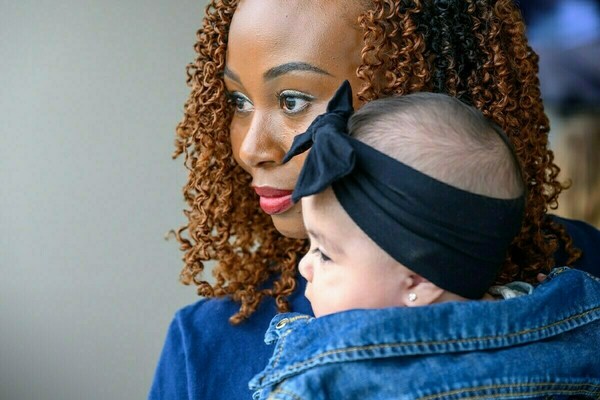Notre Dame researchers’ new NSF grant to develop spectrum sharing testbed
Researchers at the University of Notre Dame have been awarded a three-year, $1.5 million, grant from the U.S. National Science Foundation (NSF) to develop a data platform to enable measurements and experiments in the electromagnetic spectrum. These measurements will contribute to academic and industry stakeholders’ research to drive spectrum sharing policy in existing bands, such as 3-4 GHz, as well as potential new bands, such as 7-8 GHz.
The award for the Spectrum Sharing Sandbox (S3) - A 6 GHz and CBRS (Citizen Band Radio Service) Data Platform for Advancing Spectrum Coexistence will be led by principal investigator (PI) Monisha Ghosh, a professor in Notre Dame’s Department of Electrical Engineering and director of policy outreach for SpectrumX; co-PI Nick Laneman, professor of electrical engineering and director of SpectrumX, and co-director of the Notre Dame’s Wireless Institute in the College of Engineering; and co-PI Jane Livingston, vice president for information technology & chief information officer for Information Technology at the University of Notre Dame.
According to the award description from the NSF, “S3 will be a data platform that will enable measurements and experiments on deployed 6 GHz and CBRS networks thus enabling the NSF Directorate for Computer and Information Science and Engineering (CISE) community to develop a better understanding of how different types of sharing are performing in the real world.”
“It is a critical time for spectrum innovation and policy in the U.S., with an emphasis on sharing and coexistence in the mid-band frequency range” said Ghosh. “The proposed testbed, S3, will enable in-depth studies of sharing in two mid-band frequency bands: the Citizens Broadband Radio Service (CBRS) band, 3.55 - 3.7 GHz, and the unlicensed but shared 6 GHz band. Experiments and data collected from S3 will be made available for the academic community to further research in spectrum sharing and coexistence. The lessons learned will inform dynamic spectrum sharing options in new bands such as 7.125 - 8.4 GHz.”
This award came just before the U.S. Department of Commerce’s National Telecommunications and Information (NTIA)’s announcement on June 12 that it, the Department of the Navy (DON), and the Federal Communications Commission (FCC), “have successfully collaborated to expand the unencumbered service area of a critical swatch of shared mid-band spectrum. Modifications to the aggregate interference model used in the 3.5 GHz band would allow the Citizens Broadband Radio Service, or CBRS, to provide uninterrupted access to mid-band spectrum that supports wireless Internet and other services approximately to 72 million more people.”
To learn more about S3, please visit: https://spectrumsharingsandbox.org.
Contact: Christina Clark, Research Communications Specialist
SpectrumX | Notre Dame Research | University of Notre Dame
cclark26@nd.edu | 574.631.2665 | spectrumx.org
Latest Research
- Fighting for maternal healthThe United States has the highest maternal mortality rate of developed nations. An innovative postpartum care model from Notre Dame can save mothers around the globe. Read the story Originally…
- NSF Cyber SMART’s fall meeting shapes fifth year of project, legacy and future plans, and adds new memberThe U.S. National Science Foundation (NSF) Cyber SMART center gathered for its fall meeting on the University of Notre Dame campus this September. The meeting served as a checkpoint with progress reports and new projects from research leads and students…
- Slavic and Eurasian studies professor wins Humboldt fellowship to research how Russia’s religious past shapes its presentWhen Russia invaded Ukraine on Feb. 24, 2022, Sean Griffin realized his second book needed a new title. Griffin, an associate professor in the University of Notre Dame’s Department of…
- Notre Dame’s R.I.S.E. AI Conference builds interdisciplinary collaboration to inform human-centered artificial intelligenceAs artificial intelligence (AI) transforms nearly every sector of society — from healthcare and education to governance and global development — a critical question emerges: How can we conscientiously design and deploy these powerful technologies to positively impact society? This…
- University of Notre Dame joins the Global Coalition of Ukrainian StudiesThe University of Notre Dame has joined the Global Coalition of Ukrainian Studies after signing a Memorandum of Cooperation (MOC), formalized on September 24, 2025, at the Ukrainian Institute of America in New York City. Notre Dame joined four other American…
- The University of Notre Dame’s Mendoza College of Business and Industry Labs team up to inspire national security manufacturing competitiveness in the regionThe South Bend - Elkhart Region is full of manufacturing companies that are poised to grow, and Executive Master of Business Administration (EMBA) and Master of Business Administration (MBA) students at the University of Notre Dame are finding innovative ways to contribute to that growth. Earlier…













